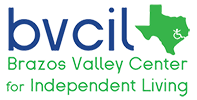Hays County Commissioners Court Takes First Step to Enable Volunteers to Report Handicap Parking Space Violators
Hays County Courthouse, San Marcos, TX – The Hays County Commissioners Court Tuesday signed a Memorandum of Understanding with Austin nonprofit Access Empowerment to deter unlawful use of parking spaces reserved for persons with disabilities.
“Unfortunately, too many people don’t understand how dangerous it is for a person with disabilities to navigate through a parking lot and that medically compromised individuals may suffer life-threatening reactions to heat and cold within just a few minutes,” said County Judge Bert Cobb, M.D. “Accessible parking spaces are designated for these persons for a reason and I feel certain that if they had a choice, people who hold permits for those spaces would prefer not to have to use them.”
According to Access Empowerment, some 18 percent of the population with accessible parking permits share less than 4 percent of spaces set aside for them, and in inclement weather and peak shopping times up to 75 percent of those spaces are taken by persons parking illegally. On any given day, up to 25 percent of those spaces are used by those not entitled.
Under the MOU, Access Empowerment would train community volunteers to use their personal smart phones to share information about vehicles parked illegally in spaces reserved for persons with disabilities. Once trained, the volunteers who see such violations would send photos of the illegally parked vehicles via encryption software to Access Empowerment for verification. If it is verified that the owner of the vehicle was not permitted to park in the space, he or she would pay a fine of up to $500 or request a trial. First-time offenders could opt to attend an education course similar to defensive driving.
“Our main goal is to educate the public about the safety issues persons with disabilities face when they are denied the parking spaces reserved for them, which impacts their safety and their access to goods and services,” said Mack Marsh, Project Director for Access Empowerment. “Our hope is that eventually there will not be a need for this type of program.”
There will be no upfront cost to the County for the program, which would be funded through a percentage of the fines collected from those who illegally park in handicap spaces. According to Access Empowerment, Hays County is expected to be the first county to implement the program, which has been in development for several years. The Texas Transportation Code authorizes the use of volunteers to report illegal parking in handicap spaces.
“We’ve had interest in the program nationwide and internationally,” Marsh said. “We’re pleased that a Texas county will be the first to implement our program, which will assist our wounded veterans, elderly, medically frail and persons with disabilities and give them the consideration they deserve.”
A launch date for the program is several months away while Hays County works with Access Empowerment to develop program policies.
###

 BOARD OF DIRECTORS RECRUITMENT NOTICE
BOARD OF DIRECTORS RECRUITMENT NOTICE